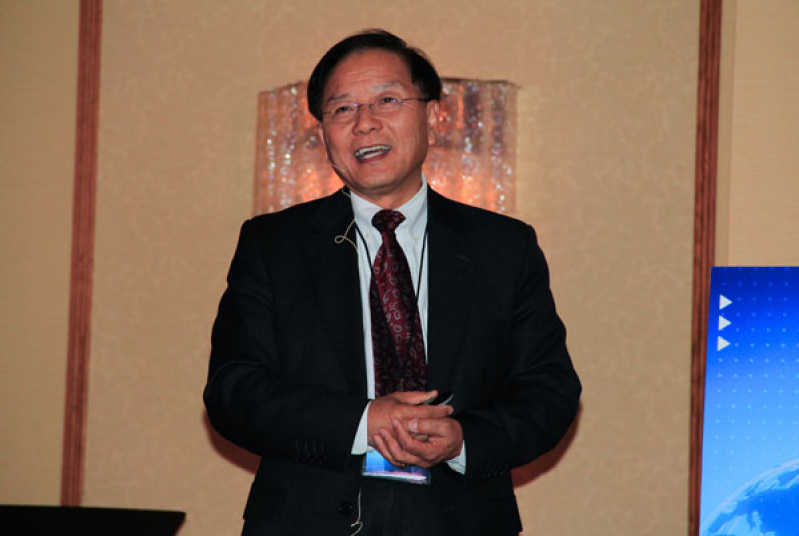
Christian entrepreneurs face many challenges in the business world. How does one deal with these challenges and be an entrepreneur that God finds favor in? The CEO of one of the largest U.S. rental car companies (Payless Car Rentals), Fred Lin, shared how to be a God-favored Christian entrepreneur at the 2012 International Christian Entrepreneurs Conference held in Houston, Texas, earlier last month.
Lin told the Chinese Christian entrepreneurs that we must first understand God's calling and command, which is to glorify God and benefit man, by connecting to more people through money so that the Gospel may be passed on to more people.
In the process of fulfilling this calling, entrepreneurs often face many hardships. He quoted Roman 5:1-5 to encourage Christian entrepreneurs and to give them hope. He said that although entrepreneurs do not know what would happen the next day, if they think about the ultimate result in the future, they can be joyful. Also, hardships give rise to perseverance, perseverance gives rise to character, and character gives rise to hope and joy. Prayers must be sincere, so that the love that is nurtured by the Holy Spirit can support us to not give up on walking the path to Heaven and to live a life of faith, hope, and love.
Lin then told the Christian entrepreneurs that God loves mankind, so we must seize the opportunity to do kind deeds and co-work with God. He used his conclusion of the 3i and 3t to share how to be better co-work with God.
1. 3i (identification, income, influence)
First of all, Lin spoke of 3i, meaning the entrepreneur should work with God through identification, income, and influence, in order to be the salt and light of the world. He especially emphasized that influence includes influencing our employers, peers, and ourselves.
2. 3t (time, treasure, talent)
Next, Lin shared the definition of 3t, which refers to Christian entrepreneurs managing their time, treasure, and talent better in co-working with God.
On the topic of time management, Lin quoted Psalms 90:12, “Teach us to number our days, that we may gain a heart of wisdom”, telling the participants that time is precious, and we should not be tempted by evils of the world to waste time. We should manage our time better and exercise the potential of every second.
Moreover, Lin shared his conclusion on the 4d (do, delegate, defer, and dump) principle, in which he differentiated between light and heavy or slow and rapid, to better manage the four tasks of "urgent and important", "urgent and not important", "important and not urgent", and "not important and not urgent". He encouraged Christian entrepreneurs to first seek God's kingdom and God's laws, to first do the important and urgent things, then delegate, defer, or dump the rest.
On the topic of managing treasure (money), Lin told Christian entrepreneurs to manage money wisely and be the master of their money. He warned us to not have a greedy heart, because greed for money is the root of all evils. If we are content with our wealth, we will be able to give and provide as taught by the Bible.
On the topic of talent, Lin encouraged Christian entrepreneurs to not only discover our blessings and exercise our blessings, but also to help others find their blessings, and to place suitable partners in suitable places. To be able to achieve this, a Christian entrepreneur must have a humble spirit, to see the strength in others, just as how Barnabas found Paul in the Bible.
Finally, Lin shared with the participants his company's experience when facing the economic crisis. During the economic crisis, many other bigger companies chose to lay off employees or decrease their pay, but he persisted in not laying off and not decreasing pay, and invited a corporate chaplain to help his employees deal with their concerns and to serve them. He discovered that out of the 76 conversations between the employees and the chaplain, only 1 concerned the company. This reminded him that when there were family concerns, it was very hard for the employees to perform well at work. Thus he first helped the employees deal with concerns in their families, served them, and finally, although the company had suffered a loss of three months' duration, the income within the next few months surpassed the previous loss.
Lin testified to the financial entrepreneurs that "the Lord sat as King", and encouraged them to hand over our decisions to God no matter what the situation was.
[Editor's note: Carol Lee translated the report.]







